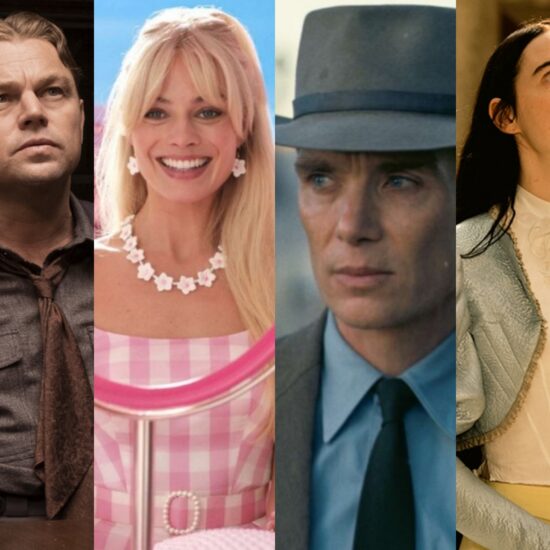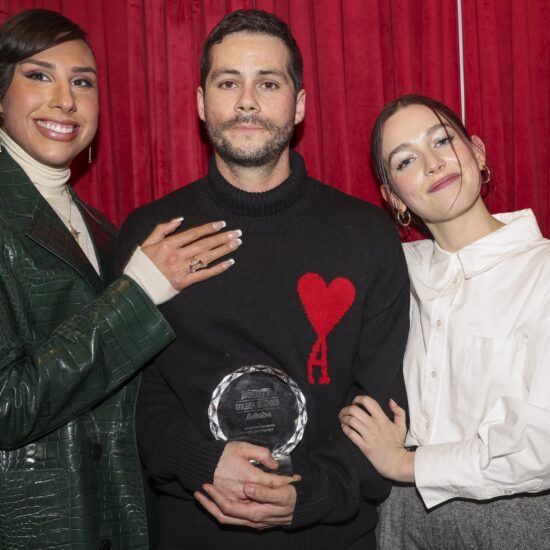
Disability is usually the last identity category most people think of when we talk collectively about bolstering diversity, equity and inclusion across institutions — yet disabled people comprise the most diverse minoritized population in the world. After all, anyone can become disabled at any time. Disability is also often invisible: Think of how many people you know who live with chronic illness, chronic pain, or learning and cognitive conditions. Even more invisible within the disabled population, however, are those who experience mental health difficulties. Despite the fact that one in five adults in the U.S. experiences mental illness, it remains a silenced and stigmatized subject.
Last year, when CODA‘s Oscar buzz was growing, many commentators reflected on the relative dearth of films that accurately depict disabilities, the fact that an even smaller number of those films actually receive awards consideration at all, and the perennial question of who, exactly, gets to tell such stories. Several films in the 2023 race feature lead characters with disabling health conditions — most of them mental illness in some form. But other than The Fabelmans, which doesn’t diagnose Mitzi Fabelman (Michelle Williams) with a disorder but instead hints at one, none of these films are strong best picture contenders. In fact, relatively few Oscar-nominated films across the past 50 years have put mental health at the forefront of their stories.
Oscar voters clearly love a good, harrowing performance that runs the gamut between histrionic and catatonic but seem to find movies about mental health issues, well, depressing. Going back to 1973, only about 20 to 25 best picture nominees out of nearly 300 explicitly address or satirize mental health crises and care. Additionally, a large number of these films display rare or extreme psychological behavior, such as Taxi Driver, The Deer Hunter and Fatal Attraction. Among the small number of nominees cited, only three have actually won the top prize: 1975’s One Flew Over the Cuckoo’s Nest, about a group of patients living at a mental health facility; 1980’s Ordinary People, about a depressed young man confronting his traumas in therapy; and 2001’s A Beautiful Mind, about a schizophrenic mathematician.
Contrast this to the exceptional number of Oscar acting nods across history that have been bestowed on performers emphasizing a stereotypical “descent into madness” archetype. Nominees like Gena Rowlands in A Woman Under the Influence, Jessica Lange in Frances and Angelina Jolie in Girl, Interrupted come to mind. (None of these films received best picture nominations.) It’s not necessarily easy for an actor to embody the complexities of mental illness, but it may be easy for voters to perceive these performances as immersive, labor-intensive and emotionally compelling. In other words, prime for a little gold trophy.
But what kind of overarching story or complete viewing experience is meaningful to the run-of-the-mill Oscar voter? Based on statistical averages, Academy members tend to view movies about men as more “best picture worthy” than movies about women. Perhaps the continued tendency of our society to associate women with (unwanted) hysterical behavior may account for why movies about male vulnerability may be seen as more de facto “relatable” and are thus more often elevated to best picture status. In addition to the three mental health-focused best picture winners mentioned earlier, movies about psychologically wounded men such as Good Will Hunting, As Good as It Gets, Silver Linings Playbook, Manchester by the Sea, A Star Is Born and Joker, just to name a few, all netted best picture nominations. In the same period, only one female-centric movie about mental decline — Black Swan — received a best picture nom.
This year’s Oscar nominations may, in fact, play out along historical lines, with mental health struggles defining the acting categories but not any other major ones. The Whale, about a depressed and agoraphobic man struggling with obesity, is a tour de force for Brendan Fraser but otherwise divisive among viewers. The same goes for Ana de Armas as Marilyn Monroe in Blonde. Other depression-themed movies like Empire of Light, The Son and Causeway have all but disappeared from precursors altogether, despite highly touted performances from the likes of Olivia Colman, Hugh Jackman, Jennifer Lawrence and Brian Tyree Henry.
Perhaps the critical acclaim for indie darling Aftersun will implore voters to see the film for more than just Paul Mescal’s masterful performance as a depressed single dad doing his best to hide his inner state while on vacation. And maybe if you squint hard enough, you could see some loose mental health themes in The Banshees of Inisherin. But given the industry support for blockbusters like Avatar: The Way of Water, Black Panther: Wakanda Forever, Everything Everywhere All at Once and Top Gun: Maverick, Oscar voters may end up overlooking fraught stories for more uplifting fare.
This story first appeared in the Jan. 18 issue of The Hollywood Reporter magazine. Click here to subscribe.













